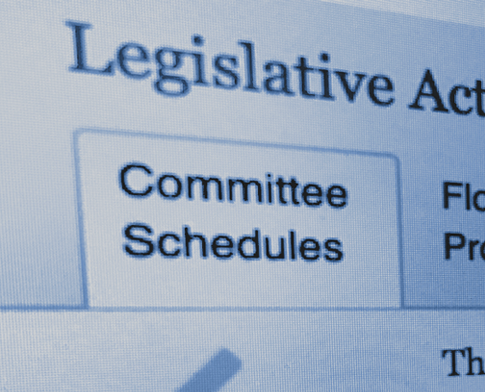Tax Update (November 18)
U.S. Chamber of Commerce responds to OECD’s ‘Unified Approach,’ Treasury ramps up to release new international tax rules, and House Ways and Means Chairman Richard Neal (D-MA) indicates movement on green energy tax extenders.
Chamber of Commerce Speaks on Global Digital Tax
On Monday (Nov. 11), the U.S. Chamber of Commerce sent a letter to the Organisation for Economic Cooperation and Development (OECD) detailing its recommendations for the multilateral digital. OECD released Pillar Two of their two-part plan to restructure the international tax structure earlier this month. In the advocacy letter, the Chamber states that the OECD must ensure unilateral digital service taxes (DST), like France’s 3 percent DST, and other unilateral measures – Diverted Profit Taxes (DPTs), Multinational Anti-Avoidance Laws (MAALs), and equalization levies – are removed as a prerequisite to the agreement.[1] “The Chamber believes it is important to maintain the coherence of the international tax system and, as such, we encourage continuing broad engagement to meaningfully address digital tax issues,” wrote Caroline Harris, the Chamber’s vice president of tax policy and economic development.[2] “We want any solution to this issue to be sustainable and are extremely concerned that the failure of this process or the non-universal adoption of a new solution would yield significant tax and trade disruptions. Further, any agreement needs to be long-term, rather than treated as a “first step” in raising more tax revenue or moving toward formulary apportionment.” Harris also requests that an economic impact assessment be completed and made available for public comment and that some form of binding dispute resolution mechanism be implemented prior to any final agreement on digital taxation is reached.
Treasury to Release Regulations on International and Domestic Tax Rules
The Department of Treasury will release a package on final and proposed rules on base erosion and final foreign tax credit regulations within the next two weeks, according to Treasury assistant secretary for tax policy David Kautter. The new rules will align foreign taxes paid by corporations and the Base Erosion and Anti-abuse Tax (BEAT) with requirements from the Tax Cuts and Jobs Act (TCJA).[3] Sixty percent of the 2017 tax overhaul has been implemented thus far, and Kautter predicts that an additional 10 percent will be complemented in the next six weeks. Regulations on the Opportunity Zone program and limits on interest deductibility through Section 163(j) of the tax code will likely be released by the year’s end, and news rules for carried interested are expected in early 2020.[4]
Moving Forward on Green Energy Tax Package
On Wednesday (Nov. 13), Chairman Neal said he’s drafting an energy tax package that would triple the number of electric vehicles per manufacturer eligible for generous consumer tax credits, extend expiring wind and solar tax credits and more, according to CQ Rollcall. Neal has been trying to hammer out a tax extenders deal with Senate Finance Chairman Chuck Grassley (R-IA), who’s also anxious to move renewals of energy-related provisions like the expired biodiesel tax credit. Democrats plan to release the clean energy tax package as soon as next week and hope the comprehensive incentive package will encourage the use of clean and renewable energy. The discussion draft will be used as a way to seek input from affected industries. The package will likely include Rep. Dan Kildee’s (D-MI) proposals for extensions of wind and solar tax credits, an expanded electric vehicle tax credit, and production credits for clean energy.
IRS Releases Revenue Procedure to Reflect TCJA Changes
The Internal Revenue Service (IRS) released Rev. Proc. 2010-46 this week. The new revenue procedure modifies Rev. Proc. 2010-51 to reflect certain changes enacted in the TCJA, most notably, the suspension of the miscellaneous itemized deduction. Additionally, Rev. Proc. 2019-46 provides that a taxpayer cannot use the business standard mileage rate to claim a miscellaneous itemized deduction during taxable years when the miscellaneous itemized deduction is suspended. The revenue procedure also modifies Rev. Proc. 2010-51 to suspend deductions for moving expenses, unless the taxpayer is a member of the Armed Forces on active duty moving pursuant to military order and to a permanent change of station.
References
[1] Lorenzo, Aaron “U.S. Chamber warns OECD on digital taxes, withholding taxes” Politico Pro, 11 Nov. 2019. https://subscriber.politicopro.com/article/2019/11/us-chamber-warns-oecd-on-unilateral-digital-taxes-withholding-taxes-1821993
[2]Harris, Caroline “Comments on Secretariat Proposal for a “Unified Approach” under Pillar One” Politico Pro, 11 Nov, 2019. https://subscriber.politicopro.com/f/?id=0000016e-5b45-d4e3-a16f-df77eccb0000
[3] Lorenzo, Aaron “International tax rules coming within two weeks, top Treasury official says” Politico Pro, 13 Nov. 2019. https://subscriber.politicopro.com/article/2019/11/international-tax-rules-coming-within-two-weeks-top-treasury-official-says-3973978
[4] Davison, Laura “Carried interest rules coming by 2020, official says” Bloomberg Tax, 13 Nov. 2019. https://news.bloombergtax.com/daily-tax-report/carried-interest-tax-rules-slated-for-2020-official-says?context=article-related
[5] Basu, Kaustuv & Wilhelm, Colin “Ways and Means Democrats eye green energy tax package” 10 Sep. 2019. https://news.bloombergtax.com/daily-tax-report/ways-and-means-democrats-eye-green-energy-tax-package
HOUSE.GOV
The Week Ahead
For the main events of the next week and more, go straight to the key events on the house.gov website.
SENATE.GOV
The Week Ahead
For the main events of the next week and more, go straight to the key events on the senate.gov website.


